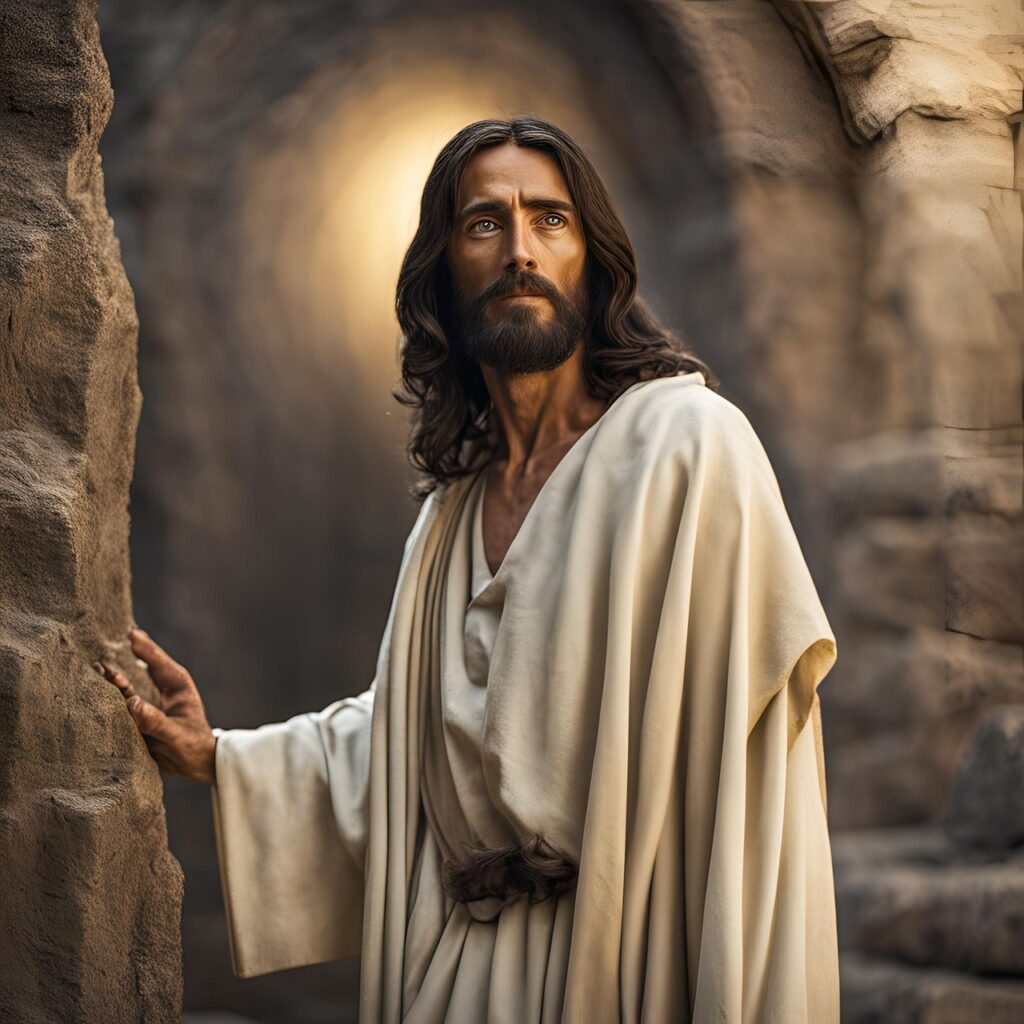Reflection by Bishop Enrique Díaz: “Let us thank the Lord for his goodness”
12th Ordinary Sunday

Mons. Enrique Díaz Díaz shares with Exaudi readers his reflection on the Gospel of this Sunday, June 23, 2024, titled: “Let us thank the Lord for his goodness.”
***
Job 38, 1. 8-11: “Here the arrogance of your waves will be broken.”
Psalm 106: “Let us thank the Lord for his goodness”
II Corinthians 5, 14-17: “Everything is new now”
Saint Mark 4, 35-41: “Who is this, whom the wind and the sea obey?
How can we not remember the Pope’s homily on this text when we were plunged into fear and despair due to the pandemic? He told us: “At sunset. This is how the Gospel we have heard begins. For a few weeks now, it seems that everything has gone dark. Dense darkness has covered our squares, streets, and cities. They took over our lives, filling everything with a deafening silence and a desolate emptiness that paralyzes everything in its path: it palpitates in the air, it is felt in the gestures, the looks say it. We find ourselves scared and lost. Like the disciples of the Gospel, we were surprised by an unexpected and furious storm. We realized that we were in the same boat, all fragile and disoriented; but, at the same time, important and necessary, all called to row together, all in need of mutual comfort. We are all in this boat. As those disciples, who speak with a single voice and with anguish, say: “we perish”, we too discover that we cannot continue each on our own, but only together” The Pope recognized the extremely difficult situation and, however, he encouraged us to strengthen our faith and the security that with Jesus we can row together despite the storms and insecurities.
Fear is an experience of our human life that all of us on a greater or lesser scale have felt. It makes us aware of being fragile and threatened creatures in many ways. It is very easy to confuse fear with the instinct of conservation that leads us to protect our own lives against the dangers that the environment presents to us. There are fears in every era and at every age, there are reasonable fears that help us overcome, but there are fears that paralyze and hinder, that cause accidents or let unpleasant things happen. There is fear of life, of taking risks, of launching into commitment. There is fear of leaving security behind, and then we are left with doubt: “If I had taken the risk…” Today’s gospel makes a very special distinction between fear and faith or trust in Jesus.
This passage begins with Jesus’ intention to cross the Lake of Gennesaret to go to the other shore, that is, to go towards the space dominated by evil forces according to the Jewish mentality. The main opposition is found in the storm that prevents them from moving forward and threatens to sink them into the waters. The sea is considered by the Israelites of this time not only with its natural dangers, of a lake with strong and violent storms, different from those of the open sea but capable of capsizing fragile barges. But the sea is also considered a symbol of all the dark forces, of the unknown, of what swallows and bends. So it produces much more fear than experienced fishermen can overcome. Crossing to the other shore with Jesus means leaving the shore of security and tranquility, announcing his Kingdom, following in his footsteps. Leave conveniences, comfort and well-being. It is taking risks, venturing to search for a different world. And this causes us fear, fear of failure, fear of pain and suffering. But there is Jesus’ invitation: “Let’s go to the other shore.”
Following Jesus is venturing into a new world, true, full of dangers, but always in his presence. Today we can put all our fears before Jesus, including those that we find humiliating to acknowledge: our fear of the truth, of failure, of the unknown, of feelings, of change. Jesus, the apparently asleep one, knows our fears and limitations and yet invites us to follow him and makes us participate in his adventure. We are afraid of true poverty, hunger, ridicule and so many other things that tie us down and keep us inactive. Jesus’ question, after the storm had calmed down to his disciples, also goes to us: “Why were they so afraid? Do you still have no faith?” Jesus asks for absolute trust in Him. Not so much in his power, since he has not come to exercise power. Whoever believes in Him participates in his experience of love, poverty, forgiveness and surrender. This is the one who defeats the seemingly invincible forces of sin, selfishness and death.
Being a disciple of Jesus means embarking with Him on the same adventure, breaking the moorings, despite our fears, and embarking on the journey with Jesus on board. Be well aware of who is next to us and continue sailing so that we can reach the other shore. We have to reflect and discover the root of our fears, especially those that keep us inactive and indifferent to the problems of our brothers. Those fears that have prevented us from taking risks in building the Kingdom, the moorings that bind us and leave us anchored on the shore. We must break the threats that are destroying the community: injustice, violence and corruption. With Christ, we will overcome the temptation to fall into pessimism and abandon ourselves to the winds of resignation. We must direct the ship of our Church and our communities. Also for us today, Jesus is present. Only by knowing that we are in the same boat and rowing together with Jesus will we be able to rebuild hope.
What do we fear? Are our fears reasonable? What have we stopped doing out of fear and later regretted? What do the words of Jesus tell us in these days, in our times and circumstances? How can we strengthen our hope?
Good Father, grant us to discover Jesus rowing with us to overcome our fears, strengthen our communities and live our hope.
Related

After Eight Days Jesus Arrived: Commentary by Fr. Jorge Miró
Jorge Miró
26 April, 2025
3 min

The Perspectivas del Trabajo Foundation is founded with the aim of promoting virtues for professional development
Exaudi Staff
25 April, 2025
2 min

Reflection by Bishop Enrique Díaz: Alleluia, alleluia
Enrique Díaz
20 April, 2025
5 min

Christ is Risen! Alleluia! Commentary by Fr. Jorge Miró
Jorge Miró
20 April, 2025
3 min
 (EN)
(EN)
 (ES)
(ES)
 (IT)
(IT)

